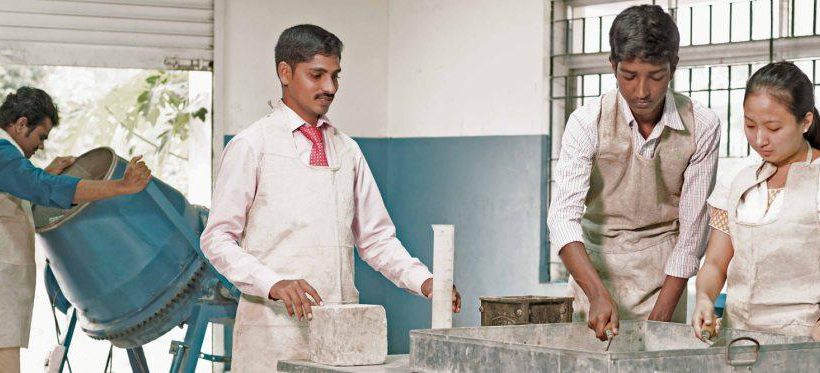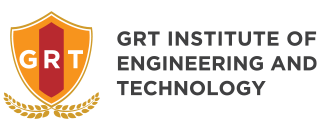
Welcome to Department of Civil Engineering
The Department of Civil Engineering was established in the year 2009. The Department broadly covers important fields such as Surveying, Construction Materials and Practices, Structural Engineering, Hydraulics and Water Resources Engineering, Geotechnical Engineering, Environmental Engineering and Transportation Engineering. The Department has well established modern laboratories with latest machinery and equipment to cater to the needs of academic and research activities.
The Department has well-qualified and committed faculty members and lab technicians. Students are encouraged to participate in co-curricular and extra-curricular activities to acquire leadership qualities. The Department encompasses professional societies such as Indian Concrete Institute (ICI), which provides students a platform to acquire knowledge in various technical activities.
Vision & Mission
Department Vision
To impart the knowledge in Civil Engineering education, research, entrepreneurship and industry outreach services for creating sustainable infrastructure and improving the quality of life with professional and ethical values.
Department Mission
M1: To provide an excellent environment for teaching – learning process and to promote knowledge in Civil Engineering.
M2: To help the students update and upgrade the Civil Engineering knowledge and skills to address present and future challenges.
M3: To make the students for pursuing higher education, and research to address the global challenges.
M4: To inculcate social responsibility, ethical values, a spirit of innovation and Entrepreneurship among
the students.
Program Educational Objectives (PEOs)
PEO1: To prepare students for successful careers in Civil Engineering field that meets the needs of Indian and multinational companies.
PEO2: To develop the confidence and ability among students to synthesize data and technical concepts and thereby apply it in real world problems.
PEO3: To develop students to use modern techniques, skill and mathematical engineering tools for solving problems in Civil Engineering.
PEO4: To provide students with a sound foundation in mathematical, scientific and engineering fundamentals
necessary to formulate, solve and analyze engineering problems and to prepare them for graduate studies.
Programme Outcome (POs)
PO1: Engineering knowledge: Apply the knowledge of mathematics, science, engineering fundamentals, and an engineering specialization to the solution of complex engineering problems.
PO2: Problem analysis: Identify, formulate, review research literature and analyze complex engineering problems reaching substantial conclusions using first principles of mathematics, natural sciences and engineering sciences.
PO3: Design/development of solutions: Design solutions for complex engineering problems and design system components or processes that meet the specified needs with appropriate consideration for the public health and safety, and the cultural, societal, and environmental considerations.
PO4: Conduct investigations of complex problems: Use research-based knowledge and research methods including design of experiments, analysis and interpretation of data, and synthesis of the information to provide valid conclusions.
PO5: Modern tool usage: Create, select, and apply appropriate techniques, resources and modern engineering and IT tools including prediction and modeling to complex engineering activities with an understanding of the limitations.
PO6: The engineer and society: Apply reasoning informed by the contextual knowledge to assess societal, health, safety, legal and cultural issues and the consequent responsibilities relevant to the professional engineering practice.
PO7: Environment and sustainability: Understand the impact of the professional engineering solutions in societal and environmental contexts, and demonstrate the knowledge of, and need for sustainable development.
PO8: Ethics: Apply ethical principles and commit to professional ethics and responsibilities and norms of the engineering practice.
PO9: Individual and team work: Function effectively as an individual, and as a member or leader in diverse teams, and in multidisciplinary settings.
PO10: Communication: Communicate effectively on complex engineering activities with the engineering community and with society at large, such as, being able to comprehend and write effective reports and design documentation, make effective presentations, and give and receive clear instructions.
PO11: Project management and finance: Demonstrate knowledge and understanding of the engineering and management principles and apply these to one’s own work, as a member and leader in a team, to manage projects and in multidisciplinary environments.
PO12: Life-long learning: Recognize the need for, and have the preparation and ability to engage in
independent and life-long learning in the broadest context of technological change.
Program Specific Outcomes (PSOs)
PSO1: Able to analyze and design the various structural components using engineering principles.
PSO2: Proficient of creating green concepts for various applications while also being able to adapt to changing industry needs.
PSO3: Able to identify the need for civil engineering solutions in a societal, environmental, and economic
context.
